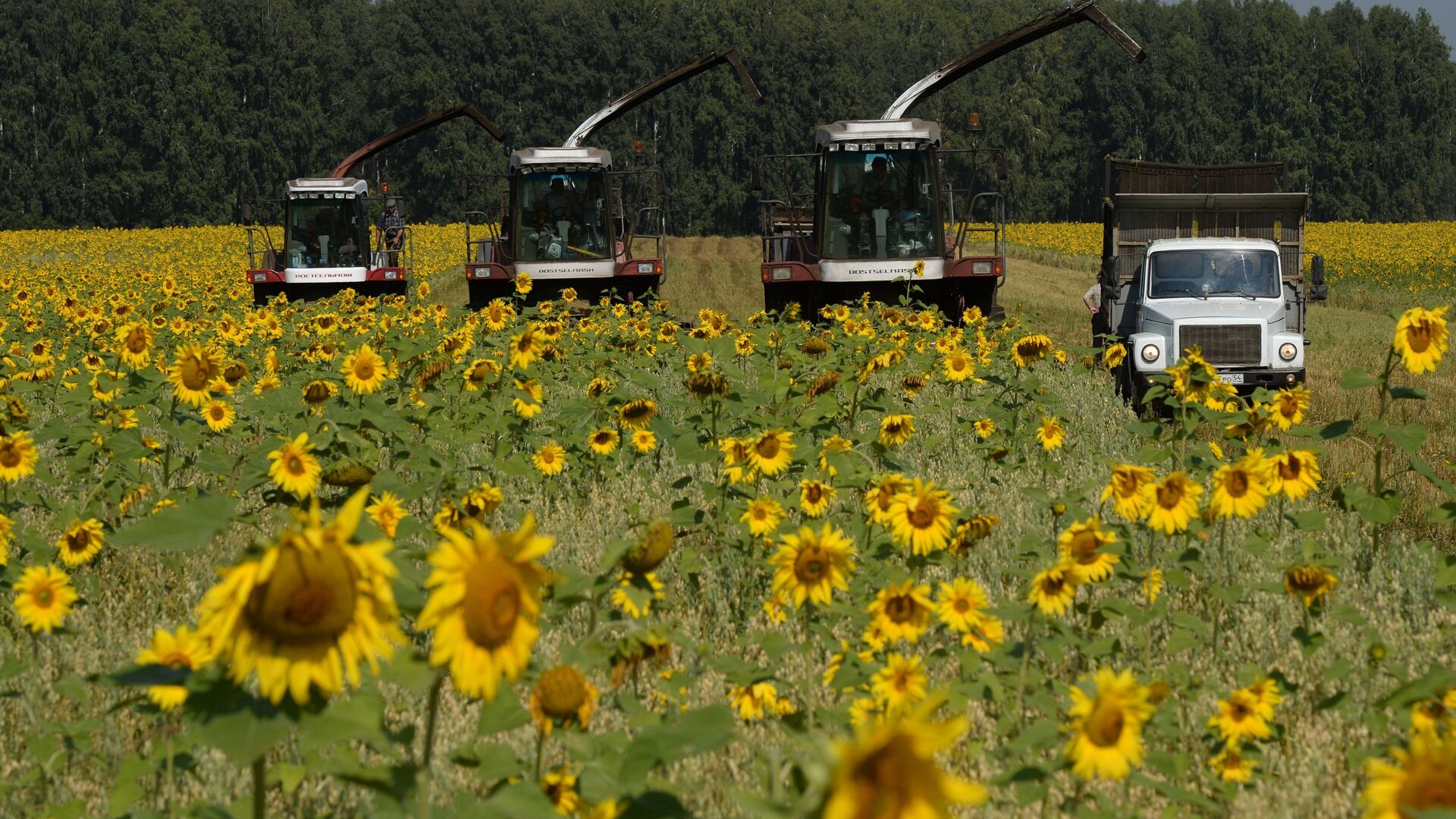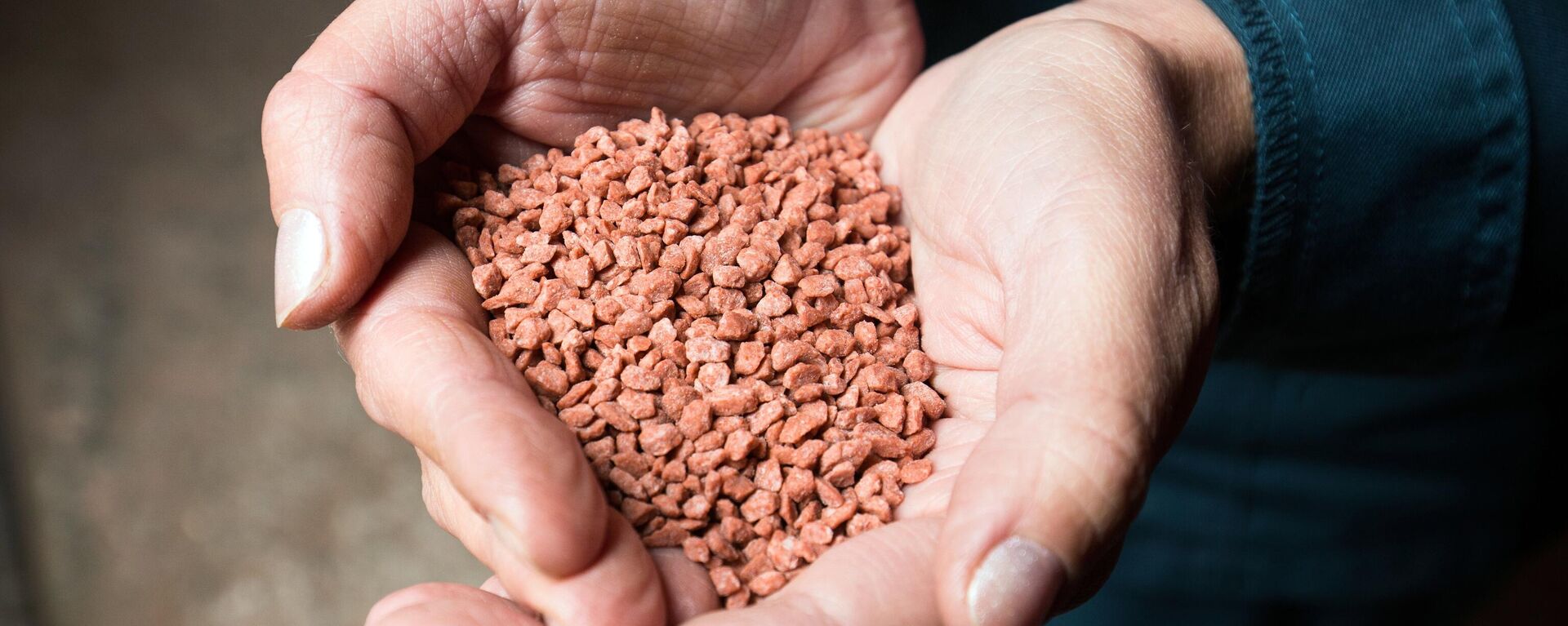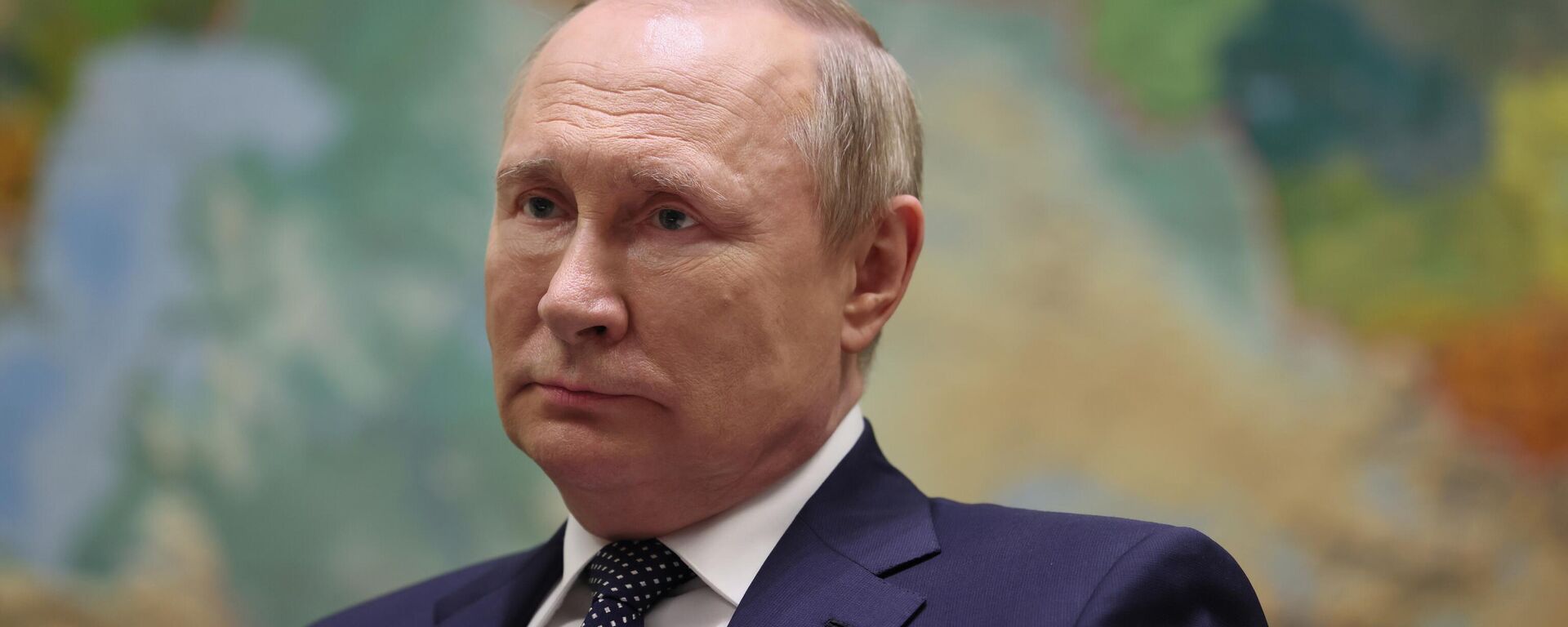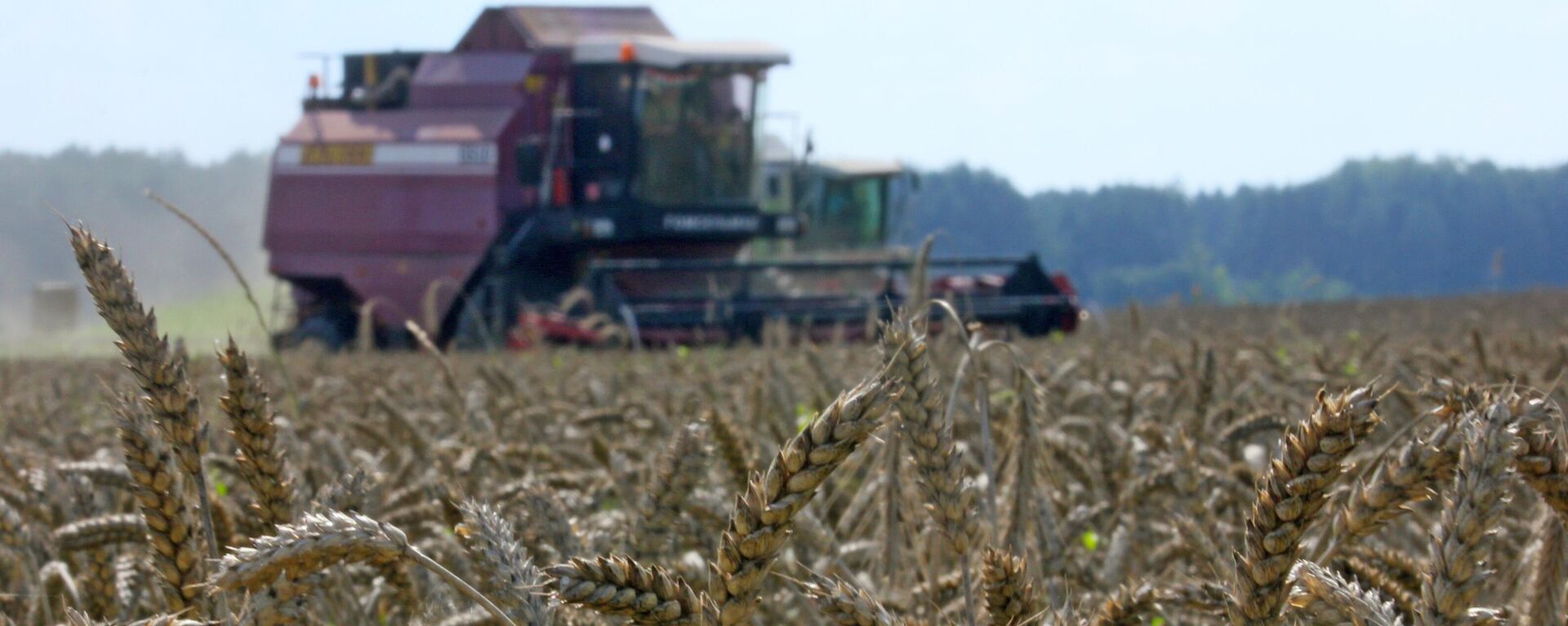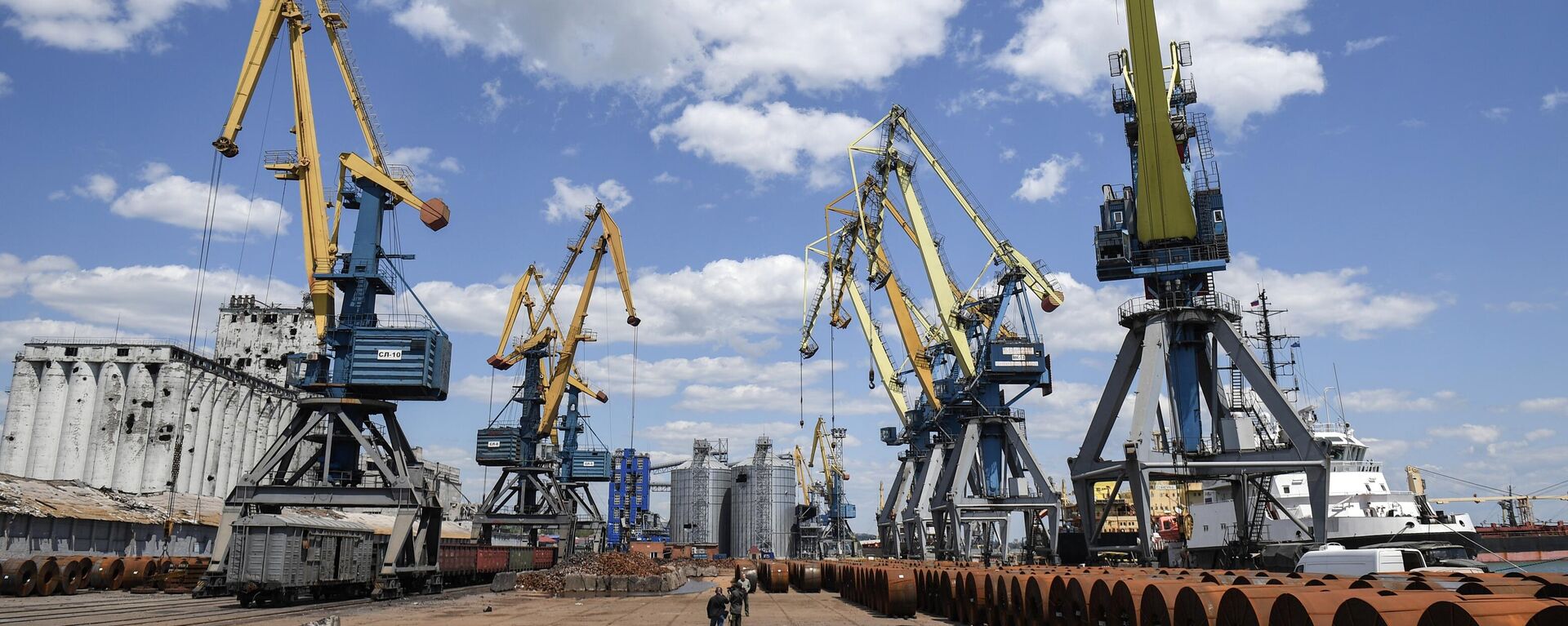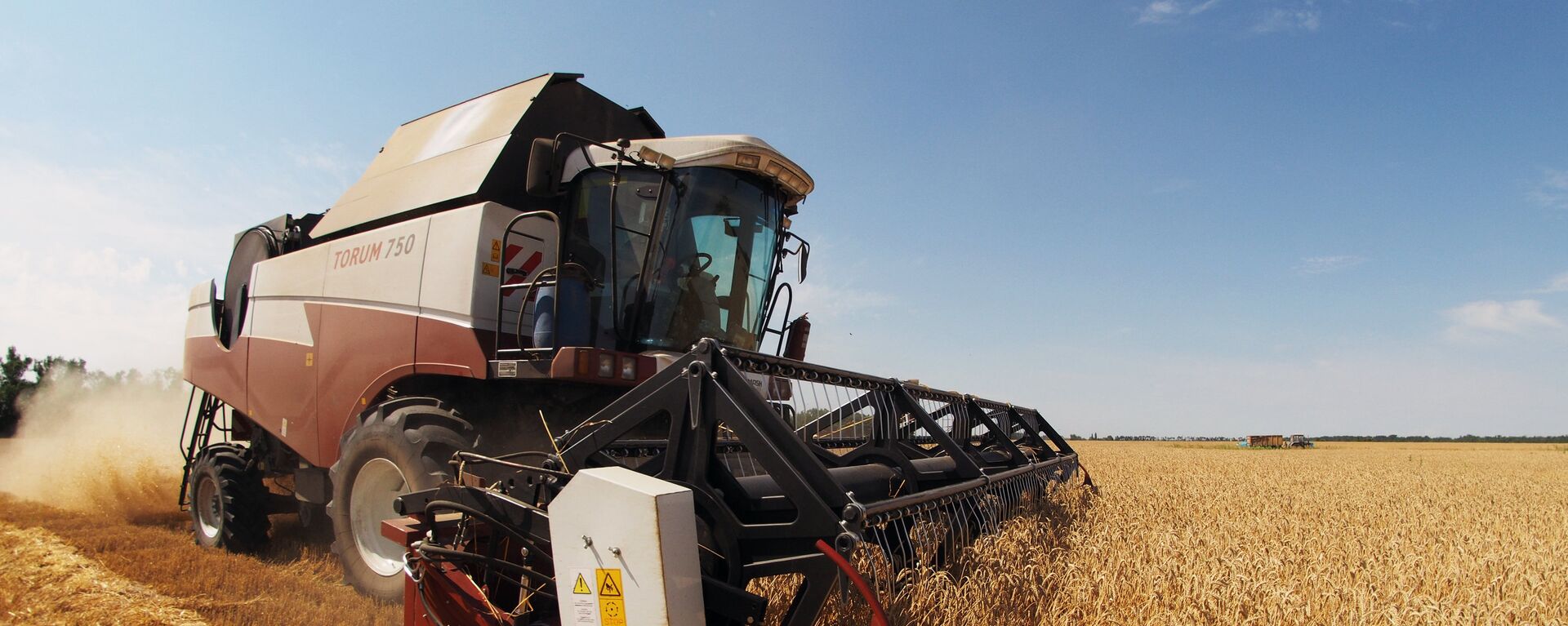https://sputnikglobe.com/20220603/brussels-to-blame-for-whipping-up-panic-on-global-markets-spiraling-energy-prices-moscow-1095978599.html
Brussels to Blame for Whipping Up Panic on Global Markets, Spiraling Food, Energy Prices: Moscow
Brussels to Blame for Whipping Up Panic on Global Markets, Spiraling Food, Energy Prices: Moscow
Sputnik International
The European Union formally approved the bloc's sixth package of sanctions against Russia on Friday, with the measures calling for a gradual phase-out of... 03.06.2022, Sputnik International
2022-06-03T16:07+0000
2022-06-03T16:07+0000
2022-06-03T20:05+0000
energy
https://cdn1.img.sputnikglobe.com/img/105280/60/1052806073_0:160:3073:1888_1920x0_80_0_0_fa73bed84d8afc6a665d300272e2a421.jpg
The European Union itself is responsible for panic on global markets and spiraling food and energy prices, and attempts to blame Russia for the brewing global crisis are unfounded, the Russian Foreign Ministry has said.The ministry accompanied the statement with a 15-page PDF document debunking European officials' attempts to blame Rusia for energy and food price shocks.The document recalled, for example, that the United Nations issues warnings going back to 2020 about the dangers of an impending food crisis, caused by COVID-19's economic fallout, including the breakdown of supply chains, the "short-sighted economic and energy policies of the largest Western economies," as well as trade wars, poor weather, previous rounds of anti-Russia sanctions, and a lack of timely investments in agriculture.US and EU fiscal authorities' money printing spree during the pandemic helped spark inflation, while Brussels' "ill-considered decision" to attempt a hurried switch to green energy played a role in causing record spikes in energy prices (which in turn also increased food prices), the document argued.European countries' decision to hold off stocking up on gas supplies for underground gas storage facilities following the cold winter of 2020-2021 in hopes that prices would go down, and the gradual economic recovery and increased demand for gas in Asian markets, also helped cause the bloc's energy deficit, and subsequent spiking prices, the explainer added.The Foreign Ministry document calculated that between 2020 and 2022, oil prices jumped more than 22 percent, while average electricity prices in Europe in March 2022 reached 350 and 530 percent above what they were a year earlier."Brussels openly declared a total trade and economic war on our country, ignoring the fact that Russia is one of the world leaders in the supply of basic agricultural products, including wheat, barley, sunflower, mineral fertilizers and fodder crops, including to low-income countries at risk of food shortages," the document stressed.The Foreign Ministry paper suggested that instead making allegations in Russia's direction, Brussels should get busy eliminating "its own systemic mistakes in macroeconomic, financial, trade, energy and agro-industrial policies," and stop diverting goods for themselves to the detriment of developing countries.Russian 'Occupation and Shelling' of Ukrainian FarmlandThe explainer also addressed the claim made by EU foreign policy chief Josep Borrell in his April 2022 presentation "Food insecurity: the time to act is now" accusing Russia of occupying and shelling Ukrainian farmland. The Foreign Ministry said Russian forces have no plans to "occupy" Ukrainian territory, but are acting to force Kiev to demilitarize, denazify and agree to neutral and non-nuclear status so that the country no longer poses a threat to the security of its own people or that of its neighbours.The explainer pointed out Kiev authorities themselves have recently confirmed that the planting season has been carried out in all regions of the country, albeit at rates between 20 and 30 percent below those of last year. "Among the main reasons for the slowdown were the shortage of fuels and lubricants (which have been directed to the needs of the Ukrainian Armed Forces), the mobilization of the male population, and the mining of fields and sea areas by the Ukrainian military," the document noted.The Foreign Ministry also dismissed the claim, made by European Commission President Ursula Von der Leyen in a speech at the World Economic Forum in Davos late last month, that Russia was deliberately destroying Ukrainian farm equipment, storage facilities and other infrastructure, pointing out that Brussels has not provided any documentary evidence to back up these allegations.The explainer pointed out that at the same time that Brussels has accused Moscow of "confiscating Ukrainian reserves of grain," Europe itself is actively taking vast quantities of grain, corn and seed crops out of the country, with "good reason to believe that the proceeds from the sale of these agricultural products are used to pay for Western weapons and military equipment supplied to Kiev.""Something similar has already happened in Ukraine's history. In February 1918, by agreement with the government and its parliament, the Rada, German and Austrian troops entered Ukraine under the pretext of protection from Soviet Russia. In exchange, 37,000 wagons-worth of Ukrainian food provisions were taken to Berlin in Vienna," the Foreign Ministry emphasized.'Blockade' of Ukrainian Grain Exports Through Black SeaThe ministry also challenged claims made by European Council President Charles Michel in early May that Russia was deliberately blocking Ukrainian grain deliveries via the Black Sea, pointing out that the Ukrainian military set up about 420 old seamines in the Black and Azov Seas, with these mines often breaking off from their anchors and floating out to sea, threatening ships and floating as far as the coasts of Romania and Turkey. The ministry also noted that over 70 ships from 16 different countries remain trapped in the Ukrainian ports of Odessa, Nikolayev, Kherson, Chernomorsk, Ochakov and Yuzhny as of 31 May. Russia, the explainer noted, has established two humanitarian maritime convoys, one apiece in the Black and Azov Seas, for the movement of civilian vessels out of the area, with the former established on 27 March.Use of Food as a 'Weapon'In her Davos speech, von der Leyen also accused Russia of using agricultural exports as a weapon. The Foreign Ministry's explainer dismissed this allegation, emphasizing that Russia, "as a responsible participant in the global food market, intends to continue to conscientiously fulfill its obligations under international contracts on the delivery of agricultural goods, fertilizers, energy and other critical products."The ministry noted that Moscow has continued to provide humanitarian food assistance to countries in need, including aid through the UN's World Food Programme to Lebanon, Tajikistan, Kyrgyzstan, Cuba, Yemen and Sudan, and separate bilateral assistance to Sudan and Cuba.
https://sputnikglobe.com/20220603/anti-russia-sanctions-left-africa-without-access-to-grain-and-fertilizers-senegalese-president-says-1095966996.html
https://sputnikglobe.com/20220603/putin-europes-short-sighted-policies-provoked-energy-crisis-1095979831.html
https://sputnikglobe.com/20220514/bidens-holodomor-policies-to-hurt-ukrainians-americans--backfire-on-whole-world-journo-says-1095507286.html
https://sputnikglobe.com/20220527/russian-mod-publishes-map-of-mariupol-ports-humanitarian-corridor-for-foreign-vessels-1095820881.html
https://sputnikglobe.com/20220520/african-countries-ask-for-russias-help-with-food-fertilizers-russian-diplomat-says-1095656259.html
Sputnik International
feedback@sputniknews.com
+74956456601
MIA „Rossiya Segodnya“
2022
News
en_EN
Sputnik International
feedback@sputniknews.com
+74956456601
MIA „Rossiya Segodnya“
Sputnik International
feedback@sputniknews.com
+74956456601
MIA „Rossiya Segodnya“
energy
Brussels to Blame for Whipping Up Panic on Global Markets, Spiraling Food, Energy Prices: Moscow
16:07 GMT 03.06.2022 (Updated: 20:05 GMT 03.06.2022) The European Union formally approved the bloc's sixth package of sanctions against Russia on Friday, with the measures calling for a gradual phase-out of Russian oil and the disconnection of more Russian banks from the SWIFT payment system. Brussels included a special "temporary exception" for Russian pipeline-based oil imports for some countries.
The European Union itself is responsible for panic on global markets and spiraling food and energy prices, and attempts to blame Russia for the brewing global crisis are unfounded, the Russian Foreign Ministry has said.
"In connection with the ongoing insinuations by the European Union's leadership against Russia about the global food and energy crisis supposedly provoked by the Russian side, we consider it necessary to provide detailed explanations of the real state of affairs in this area," the ministry indicated in a press statement Friday.
The ministry accompanied the statement with a 15-page PDF
document debunking European officials' attempts to blame Rusia for energy and food price shocks.
The document recalled, for example, that the United Nations issues warnings going back to 2020 about the dangers of an impending food crisis, caused by COVID-19's economic fallout, including the breakdown of supply chains, the "short-sighted economic and energy policies of the largest Western economies," as well as trade wars, poor weather, previous rounds of anti-Russia sanctions, and a lack of timely investments in agriculture.
Citing United Nations Conference on Trade Development data, the explainer pointed out that there is actually no physical dearth of food in the world, with feared shortages a matter of distribution and the price factor - with prices jumping 50 percent cumulatively between 2019 and February 2022, that is, before Russia kicked off its military operation in Ukraine. In 2021, prices for wheat grew 25 percent, and by February 2022 reached between 31-62 percent above the average seen over the past five years. Corn and rape seed prices also skyrocketed, increasing by 162-175 percent during the past two years alone, respectively.
US and EU fiscal authorities' money printing spree during the pandemic helped spark inflation, while Brussels' "ill-considered decision" to attempt a hurried switch to green energy played a role in causing record spikes in energy prices (which in turn also increased food prices), the document argued.
European countries' decision to hold off stocking up on gas supplies for underground gas storage facilities following the cold winter of 2020-2021 in hopes that prices would go down, and the gradual economic recovery and increased demand for gas in Asian markets, also helped cause the bloc's energy deficit, and subsequent spiking prices, the explainer added.
The Foreign Ministry document calculated that between 2020 and 2022, oil prices jumped more than 22 percent, while average electricity prices in Europe in March 2022 reached 350 and 530 percent above what they were a year earlier.
"These factors were complemented by adverse weather events and natural disasters in some regions of the world. Furthermore, anti-Covid restrictions on international movement, disruptions in freight traffic and a reduction of freight volumes increased transport costs significantly, with freight rates nearly doubling. Unilateral illegitimate restrictions by the West on Russia, including obstacles in the transport of goods, difficulties in paying for supplies, transaction bans, and customs problems have become additional risk factors to global food security," the explainer noted.
"Brussels openly declared a total trade and economic war on our country, ignoring the fact that Russia is one of the world leaders in the supply of basic agricultural products, including wheat, barley, sunflower, mineral fertilizers and fodder crops, including to low-income countries at risk of food shortages," the document stressed.
The Foreign Ministry paper suggested that instead making allegations in Russia's direction, Brussels should get busy eliminating "its own systemic mistakes in macroeconomic, financial, trade, energy and agro-industrial policies," and stop diverting goods for themselves to the detriment of developing countries.
Russian 'Occupation and Shelling' of Ukrainian Farmland
The explainer also addressed the
claim made by EU foreign policy chief Josep Borrell in his April 2022 presentation "Food insecurity: the time to act is now" accusing Russia of occupying and shelling Ukrainian farmland. The Foreign Ministry said Russian forces have no plans to "occupy" Ukrainian territory, but are acting to force Kiev to demilitarize, denazify and agree to neutral and non-nuclear status so that the country no longer poses a threat to the security of its own people or that of its neighbours.
The explainer pointed out Kiev authorities themselves have recently confirmed that the planting season has been carried out in all regions of the country, albeit at rates between 20 and 30 percent below those of last year. "Among the main reasons for the slowdown were the shortage of fuels and lubricants (which have been directed to the needs of the Ukrainian Armed Forces), the mobilization of the male population, and the mining of fields and sea areas by the Ukrainian military," the document noted.
The Foreign Ministry also dismissed the
claim, made by European Commission President Ursula Von der Leyen in a speech at the World Economic Forum in Davos late last month, that Russia was deliberately destroying Ukrainian farm equipment, storage facilities and other infrastructure, pointing out that Brussels has not provided any documentary evidence to back up these allegations.
"Russia is interested in Ukraine, like the Donetsk and Lugansk People's Republics, remaining a self-sufficient state when it comes to food security. This is in Russia's national interest, and also helps to reduce the migration burden on our country. We are making the necessary efforts to achieve this," the document indicated.
The explainer pointed out that at the same time that Brussels has accused Moscow of "confiscating Ukrainian reserves of grain," Europe itself is actively taking vast quantities of grain, corn and seed crops out of the country, with "good reason to believe that the proceeds from the sale of these agricultural products are used to pay for Western weapons and military equipment supplied to Kiev."
"Something similar has already happened in Ukraine's history. In February 1918, by agreement with the government and its parliament, the Rada, German and Austrian troops entered Ukraine under the pretext of protection from Soviet Russia. In exchange, 37,000 wagons-worth of Ukrainian food provisions were taken to Berlin in Vienna," the Foreign Ministry emphasized.
'Blockade' of Ukrainian Grain Exports Through Black Sea
The ministry also challenged claims made by European Council President Charles Michel in early May that Russia was deliberately blocking Ukrainian grain deliveries via the Black Sea, pointing out that the Ukrainian military set up about 420 old seamines in the Black and Azov Seas, with these mines often breaking off from their anchors and floating out to sea, threatening ships and floating as far as the coasts of Romania and Turkey. The ministry also noted that over 70 ships from 16 different countries remain trapped in the Ukrainian ports of Odessa, Nikolayev, Kherson, Chernomorsk, Ochakov and Yuzhny as of 31 May. Russia, the explainer noted, has established two humanitarian maritime convoys, one apiece in the Black and Azov Seas, for the movement of civilian vessels out of the area, with the former established on 27 March.
Use of Food as a 'Weapon'
In her Davos speech, von der Leyen also accused Russia of using agricultural exports as a weapon. The Foreign Ministry's explainer dismissed this allegation, emphasizing that Russia, "as a responsible participant in the global food market, intends to continue to conscientiously fulfill its obligations under international contracts on the delivery of agricultural goods, fertilizers, energy and other critical products."
"We are deeply concerned about the possibility of a food crisis, and are well aware of the importance of the supply of socially significant goods, including food, for the socio-economic development of the nations of Asia, Africa, Latin America and the Middle East in reaching [the UN's] Sustainable Development Goals," the document added.
The ministry noted that Moscow has continued to provide humanitarian food assistance to countries in need, including aid through the UN's World Food Programme to Lebanon, Tajikistan, Kyrgyzstan, Cuba, Yemen and Sudan, and separate bilateral assistance to Sudan and Cuba.
